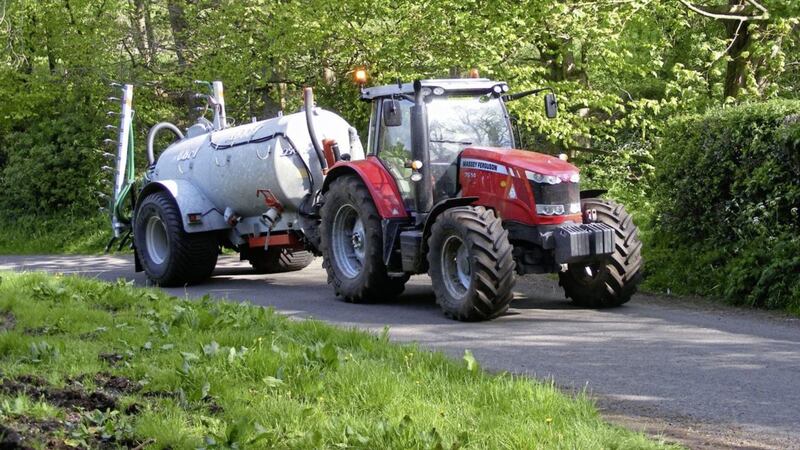THE Ulster Farmers’ Union is reminding farmers that by the end of January they must submit forms to NIEA showing the movement of organic manures off their farm.
UFU environment chairman, Wilbert Mayne, said records for 2017 must be submitted by January 31.
"If the records are not submitted to NIEA, the slurry export will not be included when calculating a farm's nitrogen loading," Mr Mayne said.
"Farmers could then find themselves in breach of the rules and they could also face a higher risk of inspection. We are pleased that this year NIEA has introduced an online system, which will help simplify the process for farmers.”
If farmers are not already using DAERA on-line services, they will need to register with the Government gateway to obtain access to the online export forms. It is important that farmers act now, as it can take time for registrations to be processed. Records sent to NIEA must cover the date moved, type of livestock manure, quantity (tonnes or cubic metres) and the transporter's name and address. The importers name and farm Business ID is now also a requirement. Exports of livestock manure (including poultry litter and slurry) to the Republic of Ireland are regulated by animal by-product legislation. This involves applying for authorisation to export.
“Many farmers recognise that importing slurry or chicken litter or manure is a useful source of nutrients on a farm and can displace artificial fertilisers. It is important that these farmers supply their farm business numbers to the exporters of organic manures, to ensure all are compliant with the Nitrates Action Programme Rules. The UFU fought against the requirement to submit records. We accept that the regulations are complex and onerous, but farmers have a legal obligation to comply, regardless of whether they are claiming area-based payments. Failure to do so could result in penalties,” Mr Mayne added.







